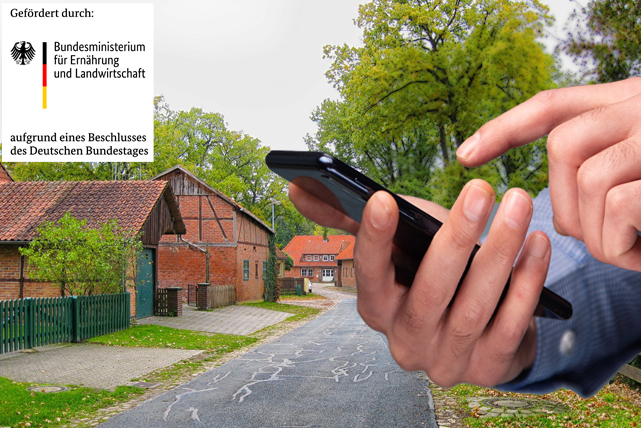Between Appstore and Register of Associations - Rural Volunteerism on the Way to the Digital Age (AppVeL)
Research department: Economy and Civil Society
Project Leader within IRS: Dr. Ralph Richter
Project Team: Christoph Thewes
Consortium: Neuland 21 e.V. (Coordination) Leibniz Institute for Research on Society and Space
Funding Organization: Federal Ministry of Food and Agriculture (BMEL), funding line Federal Programme for Rural Development (BULE)
Duration: 05/2021 - 04/2023
Everyday life in rural areas is based in a special way on volunteer work, with digital technologies increasingly being used. However, campaigning and funding practice for the digitalization of volunteering in rural areas precedes an inventory of the same: systematic findings on the use of digital tools and practices in volunteering in Germany are so far only rudimentary. Within the project, a differentiated picture of the use and handling of digital technologies in voluntary work in German rural areas, will be elaborated according to spatial types, organizational profiles and age structure of involved volunteers. A well-founded assessment of the opportunities and risks of technology use of technology in rural voluntary work is to be made. In this way, the research project responds to the fact that the advantages of digitalization for voluntary work, especially in rural areas, are repeatedly emphasized in politics and civil society - not least against the backdrop of intensified digitalization debates in the wake of the Covid19 pandemic. However, there is little systematic knowledge about the actual spread of digital technologies, such as digital means of communication and project management tools, social media or apps, in rural voluntary work.
The project uses an empirical survey to examine the state of digitalization in volunteer work in German rural areas. The aim is to clarify (1) to what extent and in what way digitalization has found its way into voluntary work, (2) whether and to what extent spatial, organizational or other differences in the dissemination and use of digital technologies can be identified, (3) what opportunities and risks digital technologies offer for the further development of rural voluntary work, (4) what support is needed in the context of the digitalization of voluntary work, and (5) what role civil society-based engagement plays for digitalization in rural areas.
The research project is divided into three work phases and four work packages: The first three work packages correspond to the three phases: 1. the collection, processing and initial evaluation of quantitative data, 2. qualitative in-depth and expert interviews, and 3. the synthesis of the survey results, the derivation of recommendations for action, the production of publications and a specialist conference. The fourth work package, communication and knowledge transfer in science and practice, takes place continuously and alongside the project.
Neuland 21 and the IRS are working on the four work packages together, with one organization taking the lead and coordinating each work package. The IRS leads and coordinates work packages 1 (quantitative survey) and 3 (synthesis, publications and recommendations for action). In its communication of results, the IRS addresses the scientific community in Germany and internationally more strongly, while Neuland 21 focuses predominantly on the practice-oriented professional community.
Photo collage: in the background: 12019/pixabay, Hand with mobile phone: Tiko/stock.adobe.com


